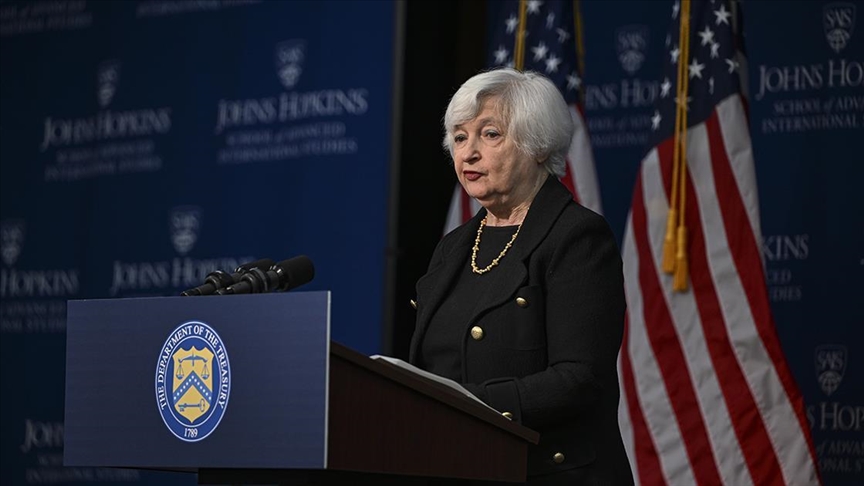ISTANBUL
US Treasury Secretary Janet Yellen urged Europe for more innovative startup companies in the clean energy and green technology sectors against China’s current industrial capacity that exceeds global demand.
She said the coronavirus pandemic, Russia’s invasion of Ukraine and the mounting physical and economic costs of climate change have shown that American and European economies are “too vulnerable, including to shocks to our energy security.”
“Together, we have taken decisive action to mitigate harm in the short-term, but we know that is not enough to make us less vulnerable to a future global health emergency, or geopolitical shock, or the increasing severity and frequency of climate-related events,” she said Tuesday at TechQuartier, an innovation hub in Frankfurt, Germany.
The Treasury chief said her country is investing in building resilient clean energy supply chains, including across the Atlantic, and added that the US and the EU have pursued ties with and support to emerging markets in other ways.
“As we look ahead, we know that there are significant obstacles that we need to overcome. We need to fuel innovation and additional investment in our countries, and in low and middle-income countries,” she said.
Yellen said one of the challenges to the development and growth of clean energy industries is China’s industrial overcapacity.
“Chinese industrial capacity is currently leading to production that significantly exceeds global demand in key sectors, including electric vehicles, lithium-ion batteries and solar. This poses a threat to the development of clean energy industries around the world, and it will be a focus at the G7 meetings in Italy later this week,” she said. “President Biden and I have made clear that we will take action to protect workers and firms in strategic sectors, including clean energy, from being undercut by unfair Chinese economic competition.”
Yellen also encouraged the US and Europe to unite to respond to China’s industrial policy, and said its industrial overcapacity poses a threat to companies in the US and Europe, as well as others.
Her comments came one week after the Biden administration increased tariffs on $18 billion worth of imports from China, which include measures on steel, aluminum, semiconductors, solar cells electric vehicles and batteries.

